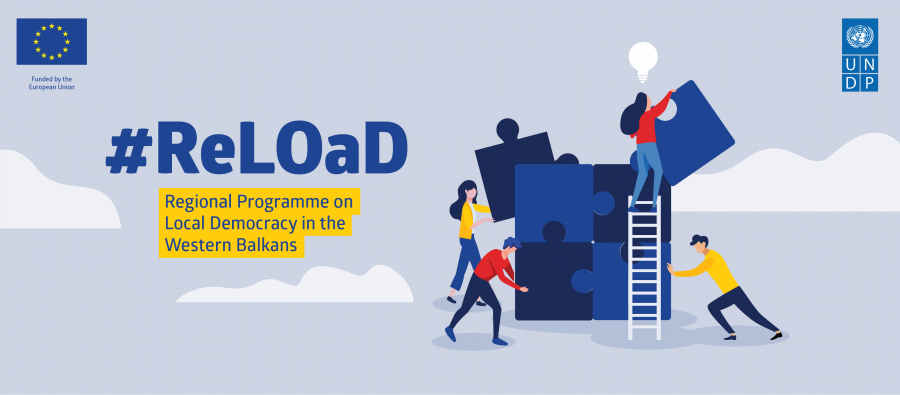12/11/2024

Terms of Reference for Op-Eds (7) on Youth Empowerment and Inter-Ethnic Reconciliation
Ethnically Marginalized Youth Empowerment in Kosovo and Bosnia & Hercegovina
Reports to: KCSS and UNMO
Background
This project is supported by the Regional Programme on Local Democracy in the Western Balkans 2 (ReLOaD2), funded by the European Union (EU) and implemented by the United Nations Development Programme (UNDP). The project "Ethnically Marginalized Youth Empowerment in Kosovo and Bosnia and Herzegovina" aims to amplify and harness the dynamic potential of ethnically marginalized youth, ensuring their pivotal role in shaping the region's future. Recognizing young people's diversity and challenges, especially among the marginalized, the initiative seeks to foster an inclusive environment where every voice is valued and heard.
1. Purpose
These Terms of Reference (ToR) outline the guidelines and expectations for op-ed submissions focused on youth empowerment and inter-ethnic reconciliation in Kosovo and In Bosnia and Hercegovina. The aim is to provide a clear framework for contributors to ensure that their pieces contribute meaningfully to these critical areas while aligning with the publication's editorial standards. 7 Op-Eds are expected to be written by various authors (5 from Kosovo and 2 from BiH).
2. Scope
These terms apply to all op-ed submissions related to youth empowerment and inter-ethnic reconciliation. This includes perspectives from various stakeholders, including young people, community leaders, and experts in the field.
3. Objectives
To guide contributors in creating impactful and insightful op-eds on youth empowerment and inter-ethnic reconciliation.
To ensure that submissions reflect the publication's values and editorial standards on these topics.
To promote constructive dialogue and actionable solutions through well-informed and thought-provoking content.
4. Content Guidelines
Relevance: Op-eds should address contemporary issues and initiatives related to youth empowerment and inter-ethnic reconciliation. Topics may include policy proposals, grassroots movements, personal stories, and successful case studies.
Originality: Submissions must be original and not previously published. Avoid substantial borrowing from other sources without proper attribution.
Perspective: Pieces should offer a clear, well-reasoned perspective supported by evidence and examples. They should aim to advance understanding and foster positive change.
Clarity: Write in an engaging and accessible manner. Avoid technical jargon unless essential, and provide explanations where necessary to ensure the content is understandable to a broad audience.
Inclusivity: Ensure that the op-ed reflects diverse voices and experiences, especially those of young people and communities involved in reconciliation efforts.
Length: Aim for a length of 400 to 800 words. If exceeding this range, provide a rationale for the extended length.
5. Submission Process
Format: Submit op-eds in a Word document or text file with standard formatting (e.g., Times New Roman, 12-point font, single-spaced).
Cover Letter: Include a cover letter with the author’s name, contact information, a brief bio, and a summary of the op-ed’s main argument.
Review: The editorial team will review submissions for relevance, quality, and adherence to guidelines. Feedback or revision requests may be provided.
Deadlines: Adhere to any specified deadlines for submission. Late submissions may not be considered for publication.
6. Author Responsibilities
Accuracy: Verify all factual claims and provide proper citations for sources. Ensure accuracy in presenting data, quotes, and information.
Disclosure: Disclose any conflicts of interest or affiliations that may influence the content of the op-ed.
Revisions: Be prepared to revise based on editorial feedback. Authors will review and approve edits before publication.
7. Editorial Review
Criteria: Submissions will be evaluated based on relevance, originality, clarity, inclusivity, and adherence to guidelines. The editorial team’s decision on publication is final.
Decisions: Authors will be notified of the decision and any required revisions.
8. Publication and Rights
Publication: Accepted op-eds will be published according to the publication’s schedule. Placement and formatting will be determined by the editorial team.
Rights: By submitting, authors grant the publication the right to edit, publish, and distribute the op-ed. Authors retain copyright but may not republish the op-ed elsewhere without permission.
8. Remuneration
Payment: Accepted op-eds will receive a remuneration . Payment will be processed upon publication of the op-ed.
9. Publication and Rights
Publication: Accepted op-eds will be published according to the publication’s schedule. Placement and formatting will be determined by the editorial team.
Rights: By submitting, authors grant the publication the right to edit, publish, and distribute the op-ed. Authors retain copyright but may not republish the op-ed elsewhere without permission.
10. Deadline for Application
All interested authors should submit the requested documents as stated in article 5, by the latest 01 December 2024 at the following email address [email protected].
Incomplete applications will not be considered, only successful authors will be contacted for further steps.
|
|
| ||||||||||